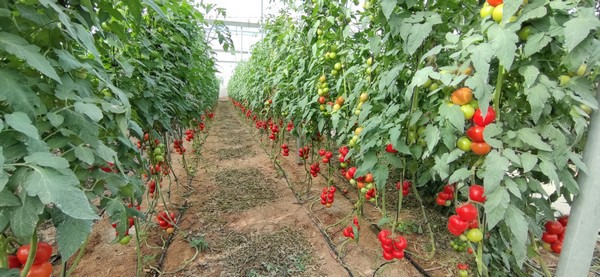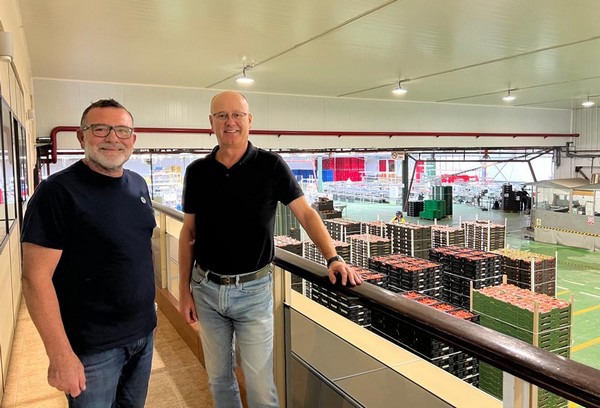The prices of tomatoes in Almeria are still high at the origin and, therefore, also for the end customer. "However, from now on, if the weather starts to improve, the production per square meter will also grow, and prices will move a little towards more comfortable levels for both growers and buyers," said Miguel Perez, commercial director of Coprohníjar.

Everything depends on the balance between supply and demand. "We had some excessively high temperatures in October, November, and December, which caused the peaks in the productions to be reached between a month and a month and a half earlier, so instead of in January/February, they were reached in November/December, when prices were, in addition, low. The cold arrived when the production volumes were more limited, slowing down the fruit's growth and reducing the supply even more, not only in Spain. The situation in all the producing countries (Morocco, Senegal, Tunisia, Greece, Türkiye) is similar, and Central Europe has not had a significant production," said Miguel.
"Normally, Dutch and Belgian producers would be starting by mid-March, although this year, because of the gas price issue, they are expected to start at the end of April; therefore, a turning point in tomato prices should happen at that time."

Francisco de Ves, president of Coprohníjar, and Miguel Pérez.
"There are plantations in the Nijar area which are already finishing, but other areas of Spain, not only in Almeria, as well as some African countries, continue with the production; so, in my opinion, as long as nothing unexpected happens, like a virus outbreak or a mass of cold air in northern Europe, there will be a smooth transition from the southern campaigns to those of Central Europe. In fact, if there is any disruption in the supply, it will only be due to outside factors."
"After Brexit, Morocco became England's main tomato supplier only because of a price issue"
While we are within a competitive but free market, in recent times, we have seen the impact of political decisions on the dynamics and balance of the supply of such essential goods as food, from the war in Ukraine to the limitations on exports in important vegetable-supplying countries.
"In this regard, after Brexit, England made a move and turned Morocco into its main tomato supplier only because of a price issue. At Coprohníjar, we have at some point shipped up to 35% of our production to England, while today's share comes nowhere near that figure," recalls Miguel.
"Morocco may be more competitive with its tomatoes because of a labor issue, and at many times it has been very good for England to have it as a supplier, but in the past few weeks, some have been sharing images of empty shelves in English supermarkets, with some vegetables missing."
Of course, that was due to various reasons at that time, said Miguel. "The Moroccan government intervened by limiting tomato exports to Africa to prevent prices from rising, and we do not know if there has been any reduction in exports to the north. But what is certain is that, regardless of market regulation, they must have had a smaller supply of goods; otherwise, prices would not have risen, and there would have been no need for intervention on exports."
Türkiye, immersed in the long process of reconstruction of the areas affected by the earthquake, also applied a similar measure to regulate prices on the domestic market by limiting tomato exports until April 14 (this veto has now been lifted). And although the main customers of Turkish companies are Eastern European countries, this decision was bound not to go unnoticed in the international market. In 2021, according to official FAO figures, Türkiye exported 606.6 million tons of fresh tomatoes, a significant amount, and certainly close to the 629.5 million tons exported by Morocco and even to the 660 million tons exported by Spain.
"It is clear that a lower supply on the market, from any area, will have an impact and cause prices to rise. As the days go by, we will see how the expected higher production and the more limited exports from Morocco and Türkiye balance out."
 For more information:
For more information:
Coprohníjar
C/ Antonio Castillo García, 1
04117 San Isidro de Níjar, Almería, Spain
[email protected]
www.coprohnijar.com










